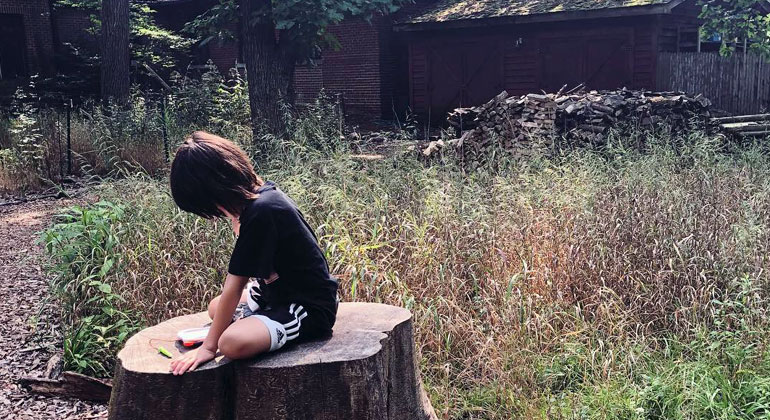Growing Up Looks Different For Everyone

I have been working in education for the past eighteen years. Over the years I have reassured countless parents about their child’s development, education, independence, and future. It is only recently that I have realized how much a certain level of academic achievements and developmental milestones are taken for granted as rites of passage in life. I have reassured parents with these assumptions countless times, “Just be patient! Of course, your child will learn how to…use the potty, drink from a glass, dress themselves, write their name, read.” The list goes on and on.
Two years ago, I became a parent to a child with special needs. At seven years old, there was no certainty on whether he would ever learn how to use the toilet, communicate his ideas, or care for his own basic needs. There were no assumptions of what he would learn. Over these past two years every milestone has been an answer to what he can achieve. My son has changed my life in countless, drastic ways. He has changed the way I define humanity. He has changed the way I see my role as an educator, and he has opened my eyes to the massive trust it requires of a parent to leave your child in the care of another person, especially when your child is non-verbal. He has also made me aware of the danger of sending the message that growing and learning looks the same for everyone. It saddens me when I hear children being taught specific standards of what it means to be big. “Big kids use the potty…Big kids use their words….Big kids don’t suck their thumb…Big kids walk! You don’t need to be carried.” The obvious reality is that a person’s worth, intelligence and age are not defined by any of these things. Growing up and being independent look many different ways. It pains my heart when I realize that my child may never achieve some of the accomplishments that are seen by so many as necessary for a fulfilling life.
Let me be clear. The tragedy is not that my son may never speak or read or write. The tragedy is that he is growing up in a society that is consumed with a definition of success that is too narrow to include him. The tragedy is that we are teaching children an attitude of superiority based on developmental milestones. My fear is that children are learning that a person’s value is based on academic readiness and achievements and physical accomplishments. Because if this is true, what should they believe about those who have different abilities? Where is the value in those who may never achieve being typical? Where will they learn dignity and respect for those who learn and live differently from them? Regardless of whatever typical achievements my son reaches, he has so much to offer the world. He is the definition of resourceful and resilient. He has overcome challenges I cannot even comprehend and has done so with a grace and humor and joy that I aspire to reach. He has kindness and empathy and although he does not have verbal language, he knows how to provide comfort and joy to others when they need it most. He is a constant example to me of what it looks like to live the value Hit’orerut, to slow down and take in the miracles that exist in the everyday moments.
If we truly value Tzelem Elohim, we must do our part to raise children that see the dignity and potential of each person. We must be intentional in our language and the message we send our children when we tell them what it means to be a big kid, to be smart, to be strong and capable.
We must send the message there is more to being big than using the potty and drinking from a cup. There is more to being smart than reading and writing. There is more to being strong than climbing and jumping. If we truly value Masa, we must be reflective in how we talk about our children’s learning and the journey of discovering both academic concepts as well as learning about their own self and who they want to become. If we truly value D’rash, we must model and welcome a spirit of inquiry that gives our children the freedom to notice others differences and ask questions honestly in order to learn more and be a good friend. If we truly value Tikkun Olam, we must take responsibility for showing our children how to bring healing and unity to repair the brokenness in the world.
There is no work we will do that is more important than this.
By Sarah Abbott, Assistant Director, Florence G. Heller JCC Early Childhood Center






